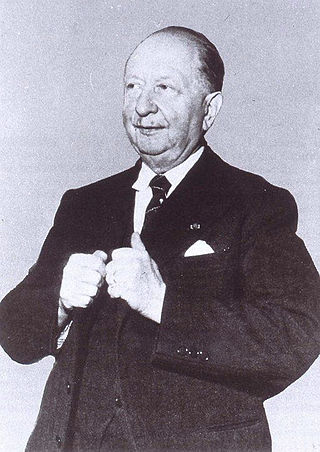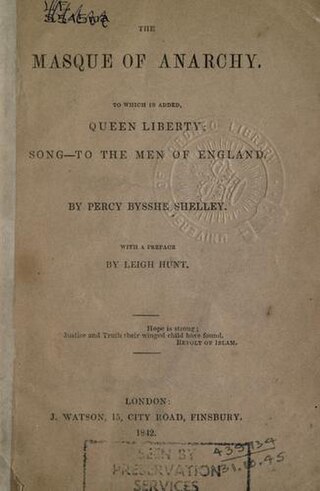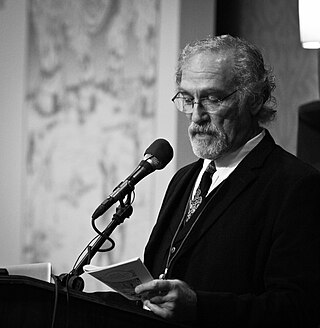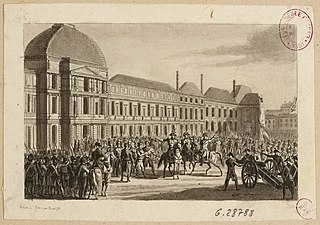Related Research Articles

The Annales school is a group of historians associated with a style of historiography developed by French historians in the 20th century to stress long-term social history. It is named after its scholarly journal Annales. Histoire, Sciences Sociales, which remains the main source of scholarship, along with many books and monographs. The school has been influential in setting the agenda for historiography in France and numerous other countries, especially regarding the use of social scientific methods by historians, emphasizing social and economic rather than political or diplomatic themes.
Historiography is the study of the methods used by historians in developing history as an academic discipline, and by extension, the term historiography is any body of historical work on a particular subject. The historiography of a specific topic covers how historians have studied that topic by using particular sources, techniques of research, and theoretical approaches to the interpretation of documentary sources. Scholars discuss historiography by topic — the historiography of the United Kingdom, of WWII, of the pre-Columbian Americas, of early Islam, and of China — and different approaches to the work and the genres of history, such as political history and social history. Beginning in the nineteenth century, the development of academic history produced a great corpus of historiographic literature. The extent to which historians are influenced by their own groups and loyalties — such as to their nation state — remains a debated question.

Howard Zinn was an American historian, playwright, philosopher, socialist intellectual and World War II veteran. He was chair of the history and social sciences department at Spelman College, and a political science professor at Boston University. Zinn wrote more than 20 books, including his best-selling and influential A People's History of the United States in 1980. In 2007, he published a version of it for younger readers, A Young People's History of the United States.

The quotation "all men are created equal" is found in the United States Declaration of Independence. The final form of the sentence was stylized by Benjamin Franklin, and penned by Thomas Jefferson during the beginning of the Revolutionary War in 1776. It reads:
"We hold these truths to be self-evident, that all men are created equal, that they are endowed by their Creator with certain unalienable Rights, that among these are Life, Liberty and the pursuit of Happiness."

Fredric Jameson is an American literary critic, philosopher and Marxist political theorist. He is best known for his analysis of contemporary cultural trends, particularly his analysis of postmodernity and capitalism. Jameson's best-known books include Postmodernism, or, The Cultural Logic of Late Capitalism (1991) and The Political Unconscious (1981).

Emmanuel Bernard Le Roy Ladurie was a French historian whose work was mainly focused upon Languedoc in the Ancien Régime, particularly the history of the peasantry. One of the leading historians of France, Le Roy Ladurie has been called the "standard-bearer" of the third generation of the Annales school and the "rock star of the medievalists", noted for his work in social history.

The historiography of the French Revolution stretches back over two hundred years.

Francis Rory Peregrine "Perry" Anderson is a British intellectual, political philosopher, historian and essayist. His work ranges across historical sociology, intellectual history, and cultural analysis. What unites Anderson's work is a preoccupation with Western Marxism.
Sheila Rowbotham is an English socialist feminist theorist and historian. She is the author of many notable books in the field of women's studies, including Hidden from History (1973), Beyond the Fragments (1979), A Century of Women (1997) and Threads Through Time (1999), as well as the 2021 memoir Daring to Hope: My Life in the 1970s. She has lived in Bristol since 2010.
The Plain, also known as The Marsh, was the majority of independent deputies in the French National Convention during the French Revolution. They sat between the Girondists on their right and Montagnards on their left. Their name arises from the fact their benches were by the debating floor, lower down from the Montagnards. Its members were also known as Maraisards, or derogatorily Toads as toads live in marshes.
Moral economy is a way of viewing economic activity in terms of its moral, rather than material, aspects. The concept was developed in 1971 by British Marxist social historian and political activist E. P. Thompson in his essay, "The Moral Economy of the English Crowd in the Eighteenth Century". He referred to a specific class struggle in a specific era, seen from the perspective of the poorest citizens—the "crowd".

The Masque of Anarchy is a British political poem written in 1819 by Percy Bysshe Shelley following the Peterloo Massacre of that year. In his call for freedom, it is perhaps the first modern statement of the principle of nonviolent resistance.

The Black Jacobins: Toussaint L'Ouverture and the San Domingo Revolution is a 1938 book by Trinidadian historian C. L. R. James, a history of the Haitian Revolution of 1791–1804.
Cultural memory is a concept that draws heavily on European social anthropology, especially German and French. It is not well established in the English-speaking world. It posits that memory is not just an individual, private experience but also part of the collective domain, which both shapes the future and our understanding of the past. It has become a topic in both historiography and cultural studies. These emphasize cultural memory’s process (historiography) and its implications and objects, respectively.

The sociology of literature is a subfield of the sociology of culture. It studies the social production of literature and its social implications. A notable example is Pierre Bourdieu's 1992 Les Règles de L'Art: Genèse et Structure du Champ Littéraire, translated by Susan Emanuel as Rules of Art: Genesis and Structure of the Literary Field (1996).

Mike Konopacki is an American political cartoonist from Wisconsin, specializing in labor issues.

The insurrection of 31 May – 2 June 1793, during the French Revolution, started after the Paris commune demanded that 22 Girondin deputies and members of the Commission of Twelve should be brought before the Revolutionary Tribunal. Jean-Paul Marat led the attack on the representatives in the National Convention, who in January had voted against the execution of the King and since then had paralyzed the convention. It ended after thousands of armed citizens surrounded the convention to force it to deliver the deputies denounced by the Commune. The insurrection resulted in the fall of 29 Girondins and two ministers under pressure of the sans-culottes, Jacobins, and Montagnards.

Guy Beiner is an Israeli-born historian of the late-modern period with particular expertise in Irish history.

A People's History of the United States is a 1980 nonfiction book by American historian and political scientist Howard Zinn. In the book, Zinn presented what he considered to be a different side of history from the more traditional "fundamental nationalist glorification of country". Zinn portrays a side of American history that can largely be seen as the exploitation and manipulation of the majority by rigged systems that hugely favor a small aggregate of elite rulers from across the orthodox political parties.

Edward Palmer Thompson was an English historian, writer, socialist and peace campaigner. He is best known for his historical work on the radical movements in the late 18th and early 19th centuries, in particular The Making of the English Working Class (1963).
References
- ↑ E. P. Thompson, "History from Below", Times Literary Supplement, 7 April 1966, pp. 279–80.
- ↑ Wade Matthews (2013). The New Left, National Identity, and the Break-up of Britain. BRILL. pp. 20–21. ISBN 9789004253070.
- ↑ When the State Trembled 1442660228 Reinhold Kramer, Tom Mitchell - 2010 "It was Lucien Febvre who first used the phrase 'history from below' when in 1932 he observed that Albert Mathiez, a founding member of the Annales tradition, had sought 'histoire des masses et non de vedettes; histoire vue d'en bas en non ..."
- ↑ AL Morton Compendium of Communist Biographies, Graham Stevenson, Accessed Feb 2014
- ↑ Black, Jeremy; MacRaild, Donald M. (1 January 2016) [2007]. Studying History. Macmillan Education UK. ISBN 978-1-137-47860-3.
- ↑ Thompson, Edward P. (1966), "History from Below'", The Times Literary Supplement
- ↑ Black and MacRaild wrote that Thompson's 1966 essay, 'History from below', in the Times Literary Supplement "was the real starting point, not only of the term, but of attempts to define it, to intellectualise about it, and to give it a coherent agenda...."
- ↑ Tom Mitchell, "History From Below," Times Literary Supplement, November 24, 2006, 15
- ↑ Howard Zinn (1980). A People's History of the United States . London and New York: Longman.
- ↑ chapter: Columbus, The Indians, and Human Progress
- ↑ Guy Beiner, Forgetful Remembrance: Social Forgetting and Vernacular Historiography of a Rebellion in Ulster (Oxford University Press, 2018), pp. 9.